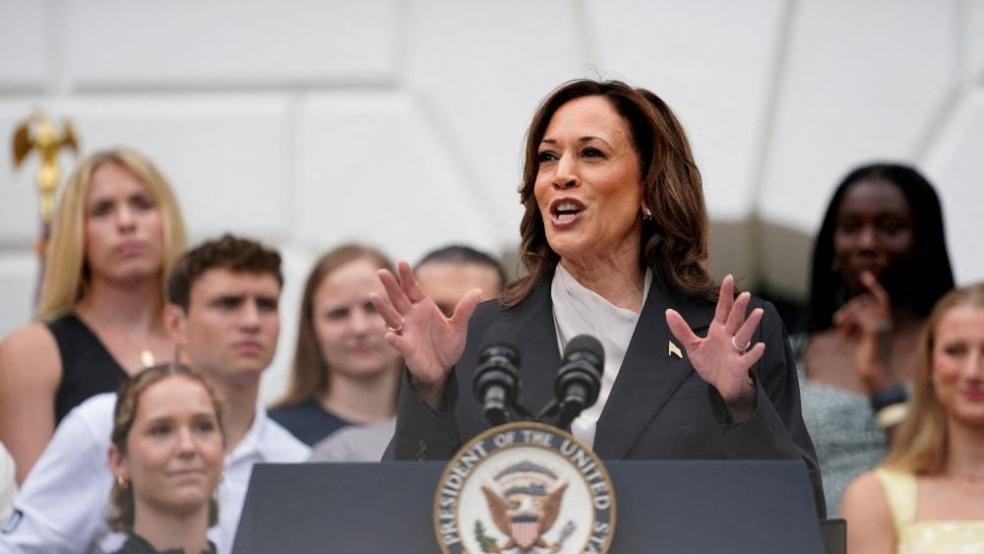It looks like Vice President Kamala Harris is staying pretty close to President Joe Biden’s fiscal proposals as she seeks the White House, at least as far as income taxes go. On Friday, her campaign told Politico that she intends to stick with Biden’s pledge not to raise taxes on anyone earning less than $400,000 a year, as part of a campaign focused on working- and middle-class voters.
“We believe in a future where every person has the opportunity not just to get by but to get ahead,” Harris said at a rally in Wisconsin last week, echoing Biden’s familiar messaging. “Building up the middle class will be a defining goal of my presidency.”
Like Biden, Harris is attacking former President Donald Trump as just another Republican primarily interested in cutting taxes for the rich. “He intends to give tax breaks to billionaires and big corporations and make working families foot the bill,” Harris said at a rally in Texas on Thursday. “America has tried these failed economic policies, but we are not going back.”
While Harris has not yet laid out a comprehensive fiscal or economic plan, there are signs that she won’t stray far from Biden’s economic policies, which were produced by an administration in which she played a part.
Still, her economic advisers — who, according to Politico’s Sam Sutton, include Mike Pyle, formerly with BlackRock, and venture capitalist Rohini Kosoglu — note that Harris has long been focused on the “care economy” that touches upon issues such as health, housing, education and family life. Early in the Biden administration, Harris pushed for policies including paid family and medical leave that would benefit the often-unpaid work done by caregivers, but those proposals dropped by the wayside as the administration negotiated legislation more focused on manufacturing, the environment and drug prices.
The question remains, then, how hard Harris will push to bring the care economy back into focus as part of her platform. Her adopting Biden’s pledge to avoid tax cuts on anyone earning less than $400,000 suggests that while she may talk more in the coming weeks about supporting caregivers and, more broadly, the liberal values of equality and inclusion, her economic platform will point toward policies that are more aspirational than transformative.




